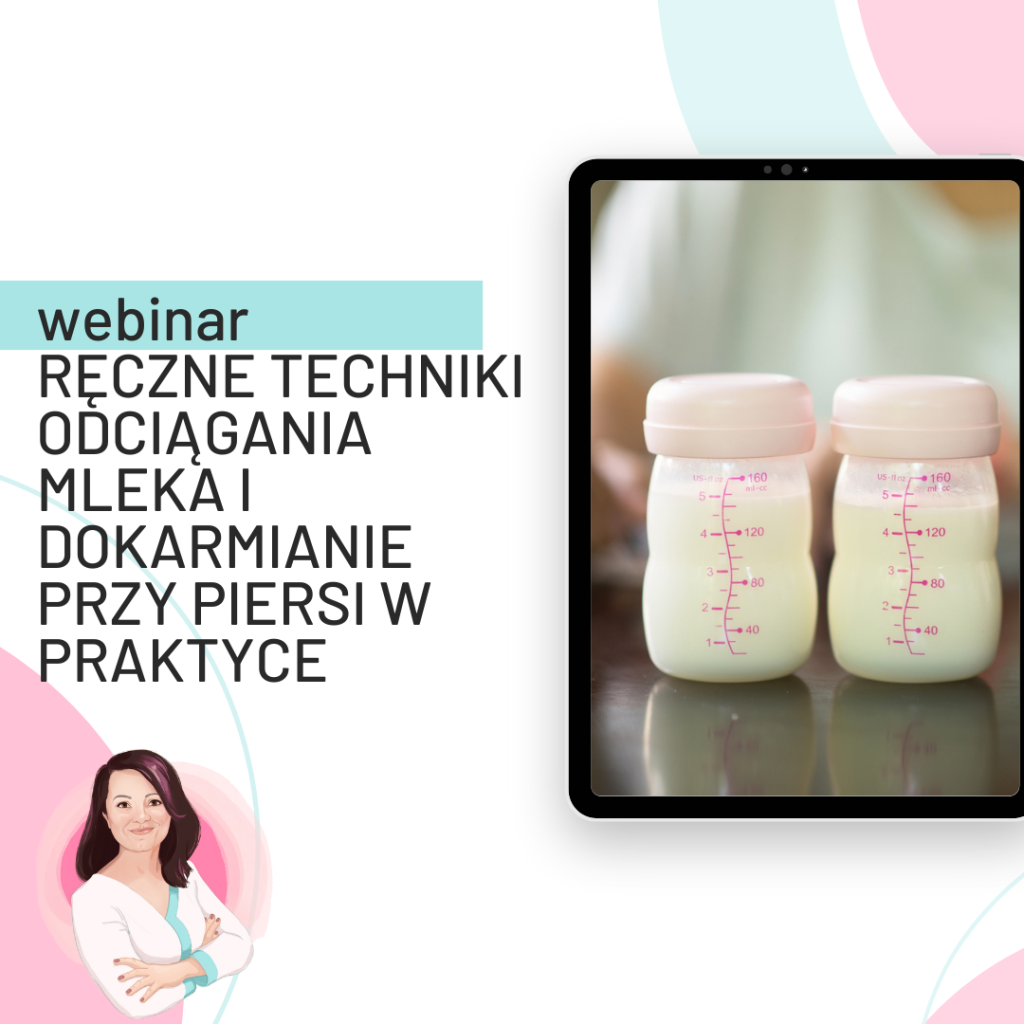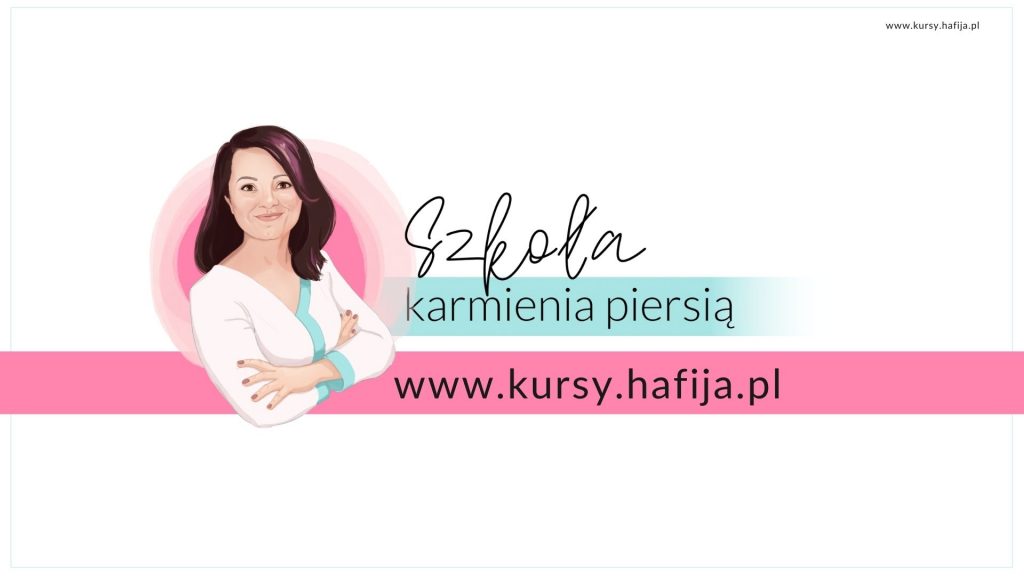Poland’s formula for breastfeeding
For the first time I have decided to publish a blog post in English, not in Polish. The reason I have is simple. You seem to know jack about breastfeeding in Poland. So I am going to tell you how it really is.
I heard the exclusive breastfeeding rate in Poland is 98% at 6 months – someone said to me lately
WTF? – I thought and run through my data and last audit report from Supreme Audit Office in Poland.
How could it be if 1 in 3 newborns (more of them perhaps) is having top ups during the typical 3 day hospital stay following birth? How could that lead to 98% EBF rate at 6 months?!
Some time ago I’ve carried out a survey amongst more than 4000 mothers and to my horror I’ve learned that every other one of them had the suggestion of supplementation to baby’s feeds made at the hospital after birth and that one in two mothers did supplement because she was told to do so. And NO, I don’t mean supplementation with expressed breast milk. I mean supplementation with formula.
Similar findings were presented by Dr Marzena Kostuch at a WHO Poland Conference last year.
According to her research, half of all newborns – HALF – are supplemented with formula in a hospital, days after birth. Human species wouldn’t survive with such high need for supplementation. Biologically it is impossible for a healthy mammal mother not to produce enough milk at that rate and her term-born newborn (or even a preemie) not to be able to thrive only on mother’s milk.
Mother nature may be a bitch but not that kind of bitch.
And that’s just a start. The report said that there are some hospitals in my country, where supplementation goes up to… 100%. Hospitals where every single newborn is being supplemented with formula still do exist on the face of our planet – in Poland to be exact. Bottles of pre-made formula are being put on the table, in the hallway, where everyone can reach for it. Every mother on the ward can take the bottle whenever she wishes to. Lactation support level: master.
But that’s not all of it. If you thought the list of fails is over – you were wrong.
So we know now that supplementation is ridiculously high, and formula milk is being given to mothers as a solution for every lactation issue. The rate of exclusive breastfeeding at 6 months in Poland hasn’t changed for years and it’s really unimpressive: 10%. Only 10% of our babies are being EBF when they reach 6 months. Previous data collected in 2002 shows that rates have improved by… less than 0,2%.
30% of children in Poland have never, and I mean NEVER been exclusively breastfed in their lives. And yet lactation initiation rate in Poland is… wait for it… almost 95%! What the hell are we doing wrong if mothers in Poland are so eager to breastfeed their babies and can’t maintain the rate?!
Almost every single mother tries to initiate breastfeeding! In the matters of hours, or days, half of them already supplement with formula.
Are we so stupid, or so unaware that we choose supplementation over what’s optimal for our babies and ourselves?
No.
Mothers in Poland are smart, intelligent and want what’s best for their babies. But with a support system so twisted that we literally have to fight not to supplement our babies on the first few days of their life, we are being screwed over.
The Supreme Audit Office report I mentioned earlier states that some hospitals explained high supplementation rate with a high rate of caesarian sections. That was not supported by other hospitals in which a high rate of caesarian sections was not linked with a high rate of supplementation. Which means that, at some point, the system tries to deal with a lactation problem by telling mothers that a caesarian section causes major lactation problems. And that is obviously bull.
In her study of the epidemiological situation in Poland, Dr Kostuch mentioned that almost every single breastfeeding problem is being ‘solved’ with a tiny bottle of formula, without any other measures or action taken to improve the process of breastfeeding. Supplementation is indicated contrary to current EBM guidelines. Yes, formula is frequently given to newborns without a good reason and without any attention to correct guidelines on breastfeeding. And yes –babies are mostly fed formula using bottles. Alternative methods are rare. Yeti rare. We know they exist, but no one has ever seen them, except for some crazy people like you know – breastapo or mad lactivists like myself. The lack of advanced (sometimes even basic) modern lactation knowledge among hospital personnel is pointed to as the BIGGEST, most important obstacle to any breastfeeding. And that I have to agree with.
Formula is seen as the most efficient way of dealing with allergy symptoms, colic episodes, sleeping deficiency, problems with weight gain and so on and so forth. Lactation consultations are not refunded by the public health system in Poland and, as far as I know, (and I should know, I took part in a special work group at the Ministry of Health), won’t be anytime soon. Midwives who work in hospitals have no time for time-consuming efficient lactation support. Nor do community midwives after the mother is discharged.
I would like to keep the lid on it, as many seem to think it’s best not to stir it, but the situation is hopeless.
Midwives are being paid a pittance, and have so much work that mostly they haven’t got time (nor money for that matter) for any specialist training on lactation. Some midwives undertake the training through the Center of Lactation Science or go on IBCLC courses, and some take additional courses – but given the needs that is still not enough.
That leads us to another major problem. The price of formula offered to hospitals.
The Supreme Audit Office stated in the report that milk substitutes are being sold to hospitals at lowered prices (0.01 zł/90ml bottle is the price for the hospital; the regular price outside the hospital is… 3 zł) or given free of charge. Oh, I know, you may want to ask about WHO’s Code on formula marketing.
I know.
Let me tell you this – Madagascar is better at Code implementation than Poland, and Cabo Verde, Afghanistan or Georgia or Kuwait. Should I continue?
Yes, I must.
The Code is implemented in an illusionary manner and, as far as I know, absolutely no one has any control over it. (My Foundation is in touch with European IBFAN office and we are trying to figure out how to change that for the better. The legislation in Poland and the current law on formula and all the other stuff that breaks the code is, should we say, murky in Poland). So while WHO is concerned about social media marketing, blogs and proves that the right BF mobile app may help women BF as recommended, Poland is still lagging far, far behind on the basics of implementation. So far from the main recommendations, that there is absolutely no knowledge as to who is actually breaking the code.
Women are being given special discharge packs or boxes for free (ever heard how those bags can undermine BF? I have!) and most hospitals don’t get ANYTHING for the marketing actions effectively carried out by their own personnel. Personnel who, according to the report, haven’t got enough time to take care of mothers well enough, apparently have loads of time to give out bags and boxes with low quality gifts and samples and to gather personal information from patients (full name, email address and child’s DOB).
And common breastfeeding myths are being repeated as knowledge on and on and on.
Instructing mothers to not eat … well, not to eat anything except rice and boiled chicken is par for the course. As is supplementing infants less than 6 months old with water, glucose, or a special anti-colic tea, prescribing formula supplementation for any reason, and refusing to prescribe medication to a mother when she has a common throat or nose infection. Medical staff is very efficient at undermining mothers’ self esteem at every possible turn.
And what of society… ?
Last year a mother was trying to breastfeed her baby in a restaurant when (according to the mother’s statement) the waiter told her to go feed in the toilet. An anti-discrimination law society decided to support the mother in initiating a legal case against the restaurant manager for discrimination past month. And yet the society-at-large judges on social media and in the press that the mother is greedy, or that she was exposing herself, putting her “ugly leaking boobs” on display. The resulting shitstorm was absolutely terrifying.
As a society, we are no longer accustomed to one of the most natural views in the world – that of a mother feeding an infant.
It doesn’t surprise me, in a country where only 10% of mothers breastfeed exclusively at 6 months of their children lives. We don’t have an opportunity to actually see any breastfeeding in action. We have to rely on the twisted GoT-style interpretations of breastfeeding or omnipresent bottle and powdered milk in the media. The ultimately symbolic markings of our breastfeeding failure as a country.
So if by some freakish accident, or some stroke of luck, Poland had actually had 98% EBF rate, right in the very middle of The Old Continent, we would host many, many visitors and delegations and they would be trying to learn from us on how to achieve such brilliant rates! Yet no one arrives. No one shows up.
Why?
Because we know jack shit on supporting breastfeeding, we have shitty rates, and we know as much about maintaining EBF. Women in Poland can hardly ever reach their lactation goals and are even less likely to reach the WHO gold standard.
Sorry to disappoint you. If you ever heard of the breastfeeding Eden that Poland is, then, my friend, you have been fooled. Badly…
P.S. In Poland should you happen to BF longer than a year, almost every one you meet will tell you that you now produce water, not milk, and that baby is too old to be fed from the breast, that WHO guidelines are for developing countries and in our “highly developed country” you can safely give… formula. Just to be clear. Polish women are no fairies and we can’t produce water in our Slavic boobs even if we wanted to. But neither can any other mammal on this planet, and still society wants to know better.
Doesn’t it just?
P.P.S. Yes, we have heard about milk banks in Poland. Sure we did. We even have a few, with some of the best scientist on human milk in Poland. We know that donor milk is very, very important for newborns and preemies. We have made proper scientific research on human milk even on milk of mothers who breastfed longer than a year.
Some hospitals have also heard about human milk banks. Some of them have even signed an agreement, to acquire human milk straight from the bank for babies who can’t be breastfed. But according to the Supreme Audit Office report hospitals don’t acquire that milk at the right level. Apparently some of them have the right agreements but no conditions to store, transport and provide donor’s milk to mothers and their children. The reason to sign an agreement without the ensuring the right conditions remains a mystery to me.
red. ang. Lula








Hafija idzie w świat! Podziwiam Cię za ten niegasnący zapał, i za to, że ciągle podnosisz sobie poprzeczkę.
Moja siostra urodziła w maju. Jest to jej pierwsze dziecko, po porodzie naturalnym zmęczona leżała w sali poporodowej z owiniętym przy sobie maluchem. Odwiedziłam ją po 2h, kiedy zobaczyłam malucha dosłownie „ciumkającego” ustkami, zapytałam, czy przystawiała go do piersi. Nie, nikt jej nic nie mówił. Przyszła pielęgniarka i kiedy siostra zapytała o karmienie, ta tylko nawrzeszczała na nią z góry do dołu, dlaczego jeszcze tego nie zrobiła. Nie powiedziała jak przystawiać, w jakich pozycjach może karmić. Na noc małego zabrali, żeby mama „mogła odpocząć”. Rano obok dziecka w plastikowym wózeczku stała butelka ze sztucznym mlekiem. Mały był w nocy dokarmiany, bez wiedzy matki. W ciągu 3 dni pobytu moją siostrę odwiedzały pielęgniarki wpadając szybko z pytaniem czy boli i podać coś przeciwbólowego. Oczywiście pudełko „prezent” z ulotkami, próbkami i ankietą przyszło jako pierwsze. Mały ciągle płakał, siostra nie radziła sobie z karmieniem, miała poranione piersi. NIestety po miesiącu przeszli całkowicie na sztuczną mieszankę, gdyż nawet położna środowiskowa (zalecająca karmienie co 3h, po 20min z każdej piersi i broń Boże niech dziecko nie wisi na piersi – ma się najeść i dać mamie odpocząć) nie pomogła przystawiać małego poprawnie, piersi były w coraz gorszym stanie.
Dzięki Tobie Hafijo, moja świadomość karmienia piersią jest teraz o niebo lepsza. Będę walczyć o każdą kroplę, jak najdłużej. Wiem, gdzie mogę szukać pomocy, gdy pojawią się trudności. Za 2 mce zostanę świadomie karmiącą mamą, żałuję tylko, że moja siostra nie trafiła na Twojego bloga przed narodzinami synka.
Jako młoda mama z pierwszym dzieckiem nie umiałam dobrze przystawić do piersi a mała na dodatek nie chciała efektywnie ssać. Raz Polozna laktacyjna przyszła i ja przystawila, ale nie za bardzo dawałam już radę sama, bo mała ssała 1, 2 min i spała a kazali karmić 10 i to z każdej piersi. Drugiej nocy jak dziecko płakało i próbowałam ja karmić, przyszła Polozna z pretensja, ze dziecko płacze i ze powinnam dokarmić. Ze stresu dałam butelkę, bo przecież nie chciałam głodzić dziecka. W dniu wypisu przyszła pani pielęgniarka, która chciała pomoc mi nakarmić mała, ale po kilku próbach stwierdziła, ze może być to nie możliwe, bo mała jest nerwowa i niecierpliwa i kp może się nam nie udać. Pediatra kazał dokarmiać, bo skoro nie leci 20 ml na każde karmienie, to trzeba dać mm już od 2 doby. Byłam tak zestresowana i zrezygnowana, ze pierwsze dni w domu przepłakałam i dawałam mm po nieudanym karmieniu piersią, ale nie podawałam się i przystawialam dotąd aż mała załapała, o co chodzi dopiero po tygodniu. Córka ma teraz 6 tyg i karmie piersią, jest bardzo nerwowa a do tego ma przedłużająca się żółtaczkę, wiec raz dziennie dostaje mm – potrzebnie czy nie, nie wiem, bo każdy pediatra mówi co innego. Wiem jedno, ze gdyby nie moja determinacja, to w ogóle nie karmilabym piersią, bo pomoc w szpitalu po porodzie żadna, pózniej od położnej środowiskowej tez niewielka. Opieka nad kobieta po porodzie w szpitalu powinna skupiać się przede wszystkim na kp a matka, która wychodzi powinna mieć pewność, ze wie, jak to dobrze robić. Nie wszystkie dzieci są zarlokami od początku i swietnie rozumiem mamy takie jak ja, zmuszone do dokarmiania mimo, ze oczekiwały pomocy w naturalnym karmieniu. Ciężko karmić wyłącznie piersią, kiedy na kazym kroku wymuszają dokarmianie, bo za mało pokarmu, bo żółtaczka, bo mały przyrost wagi, bo dziecko boli brzuszek i pewnie ma nietolerancje laktozy. A jak się straci te pierwsze dni, tygodnie na takim stresie i nierozwiązanych problemach laktacyjnych, to cieżko wytrzymać pół roku czy rok. Początki karmienia wspominam jako traumę, ale przypuszczam, ze często się zdarzają takie problemy i zwyczajnie trzeba dać sobie czas na naukę siebie i dziecka, bo to nowa sytuacja i rola. Ja będę karmić tyle, ile będę mogła, chce jak najdłużej i mam nadzieje, ze się uda, ale wiem, ze wiele kobiet rezygnuje na takim etapie, bo butla jest łatwiejsza, oszczędza stresu matce i dziecku. Z jednej strony słyszy się ze mm to wielkie zło a z drugiej już nie takie wielkie, bo łatwiej wetknąć matce butle niż pomoc w nauce karmienia. Powodzenia wszystkim karmiącym z problemami. Warto przezwyciężać te trudności, żeby dziecko dostało to, co najlepsze – mleko mamy.
Światełko w tunelu: rodziłam w jednym ze szpitali wojewódzkich (Biała Podlaska) przez zaplanowane cesarskie cięcie.
NIKT nie powiedział mi, że po CC nie ma pokarmu (zresztą bym go wyśmiała, bo chodziłam do świetnej szkoły rodzenia – Koala w Krakowie – i tam mnie świetnie teoretycznie przygotowali do karmienia piersią).
NIKT nie zaproponował dokarmiania. NIKT nie podkopywał mojego poczucia własnej wartości przez komentarze typu „dziecko płacze, bo się nie najada”, „na pewno nie ma pani pokarmu”, „z takich piersi nic nie poleci” itd.
Problemy laktacyjne (bolesne brodawki, zastój, zatkany kanalik) rozwiązywane były w sposob naturalny – smarować własnym mlekiem, przystawiać dziecko, zmienić pozycję do karmienia, robić okłady itd.
Każda położna, która do mnie przychodziła, oferowała pomoc w karmieniu, przystawianiu.
NIKT nie komentował mojej diety. Żeby nie było tak różowo, to na odchodnym dostałam kartkę z zaleceniami żywieniowymi (kuriozalnymi, w rodzaju: pomidory można, ale tylko bez skórki; wśród pokarmów zalecanych były parówki, serki topione i białe pieczywo). Rażąco sprzecznymi z tym, co mi dawali jeść w szpitalu i co zaleca się jeść przy cholestazie. Ale uznajmy to za potknięcie szpitalnego dietetyka 😉
Strasznie smutne, że to nie jest standard :-/
Cała cholerna prawda. Siedziałyśmy w szpitalu 7 dni i oczywiście dokarmianie (bo nie ma mleka, bo płaskie brodawki, bo cesarka, bo za duże piersi, bo za bardzo spadła na wadze, bo ma żółtaczkę, bo… już sama nie wiem co). Ostatnią porcję mm podałam w 8 dobie. Później wystarczało moje mleko – z buli, odciągnięte laktatorem. Dobre i to, że chociaż powiedzieli jak odciągać i podać siarę. To, że karmimy się do dzisiaj (15 miesięcy) zawdzięczam ciężkiej pracy własnej, determinacji i kasie wydanej na doradców laktacyjnych (nie żałuję żadnej złotówki, ale nie każdego stać). Próbowałam oddawać mleko do banku, ale nie byli zainteresowani. Szpital z tych certyfikowanych jako przyjazny dziecku.
A i tak ostatnio usłyszałam od lekarza, że po roku to karmienie jest już tylko dla mamy, dla dziecka nie ma już potrzeby. Biorąc pod uwagę, że nie lubię karmić, to chyba jestem masochistką. Dobrze, że czytać potrafię. Po lekturze Polityki karmienia piersią i zaleceń WHO łatwo nie odpuszczę.
Dobry artykuł, grunt w tym żeby pokazać społeczności wady i skutki , nie tylko te doraźne ale również długoterminowe podawania mieszanki, o tym się nie wspomina, przypuszczam że badań na ten temat także nikt nie robi.